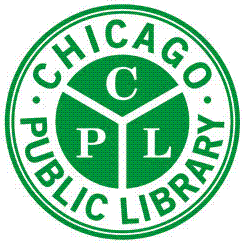 In an effort to address the lack of broadband access among low-income residents, the Chicago Public Library (CPL), and New York Public Library (NYPL) on June 23 announced new programs that will allow patrons to check out and take home Wi-Fi hotspots. NYPL’s “Check Out the Internet,” and CPL’s “Internet to Go” programs are made possible, in part, by grants awarded this week by the Knight News Challenge, a competition developed by the John S. and James L. Knight Foundation in partnership with the Ford Foundation and Mozilla, to fund and promote projects committed to making the Internet an open, equitable platform.
In an effort to address the lack of broadband access among low-income residents, the Chicago Public Library (CPL), and New York Public Library (NYPL) on June 23 announced new programs that will allow patrons to check out and take home Wi-Fi hotspots. NYPL’s “Check Out the Internet,” and CPL’s “Internet to Go” programs are made possible, in part, by grants awarded this week by the Knight News Challenge, a competition developed by the John S. and James L. Knight Foundation in partnership with the Ford Foundation and Mozilla, to fund and promote projects committed to making the Internet an open, equitable platform.
“In New York City, about 27 percent of households don’t have computers or broadband at home,” Tony Marx, president and CEO of NYPL, told LJ. In households with incomes of $35,000 or less, the figure is closer to 50 percent. “That means that there are neighborhoods in New York—the poorer neighborhoods in New York—where it’s prevalent that people do not have computers or broadband at home.”
Public computers and wifi access at NYPL branches help address this component of the digital divide to some extent, but demand is significant. Last year alone, NYPL hosted over 3.1 million computing sessions, 2.8 million wifi sessions, and provided access to 1,539 laptops, which were borrowed for on-site use almost 410,000 times, according to the proposal that NYPL submitted to the Knight News Challenge.
“People are lining up for computers in our branches, which is the only place they can get free access,” Marx said. “They’re even sitting on our steps at night to get Wi-Fi that bleeds out of the building.”
NYPL recently launched a small Wi-Fi hotspot lending pilot program that involves 100 New York families served by four NYPL branches. The $500,000 awarded by the Knight Foundation will enable NYPL to expand this pilot program to thousands more households beginning this fall, following the same basic parameters.
The wifi hotspot devices will be loaned out for a period of two months each, although NYPL is planning to re-evaluate the checkout period and will consider extending it up to six months or possibly an entire year. To check out a device, a patron must be enrolled in an online educational program, such as NYPL’s Library’s Out of School Time (OST), English for Speakers of Other Languages, and Technology Training programs. This requirement serves several purposes, Marx said.
“That allows us to make sure that people can use this access for educational work or homework that they need to do, and it means that people who are getting the lend have ongoing interactions with us. We see them several times a week, generally,” he explained. “And it also is a way of making sure that the people who most need access are getting it” without employing some form of needs testing.
NYPL plans to continue its fundraising efforts in support of this program, with the goal of ultimately raising $2 million to provide mobile hotspot devices and library-funded broadband access to 10,000 families in New York City. In order to ensure that the program covers the entire city, NYPL is spearheading the project on behalf of the city’s other two major library systems, the Queens Borough Public Library, and Brooklyn Public Library (BPL).
“We don’t yet know details about how many locations or number of units that will be for loan, but I assure you, it is a badly needed service,” Joanne King, director of communications for the Queens Library, told LJ, describing similarly high demand for computers and broadband access at its libraries.
In addition, NYPL will be working with the State Library systems of Kansas and Maine to study how this lending concept could be adapted throughout the U.S.
 In Chicago, Mayor Rahm Emanuel announced that CPL had received its $400,000 Knight News Challenge grant during the 2014 NEXT Library Conference this week. Digital literacy has been a key initiative for the Emanuel administration. In 2013, Chicago’s public schools partnered with Code.org to add computer science to their K-12 core curriculum, and the mayor’s office expanded the budget for CPL’s YOUmedia digital skill development programs by $500,000.
In Chicago, Mayor Rahm Emanuel announced that CPL had received its $400,000 Knight News Challenge grant during the 2014 NEXT Library Conference this week. Digital literacy has been a key initiative for the Emanuel administration. In 2013, Chicago’s public schools partnered with Code.org to add computer science to their K-12 core curriculum, and the mayor’s office expanded the budget for CPL’s YOUmedia digital skill development programs by $500,000.
“From day one we have worked to increase internet connectivity and knowledge for our residents, because today’s digital skills are 21st century workforce skills,” Emanuel said. “I thank the Knight Foundation for their support, because with this funding the Chicago Public Library will now be able provide free, easy-to-take home, high-speed Internet access that will serve as a game-changer for children and adults across Chicago, but especially in communities that have traditionally been underserved.”
CPL will launch its program at six branches in neighborhoods where residential broadband access is especially low. Patrons will be allowed to check out Wi-Fi hotspots for up to three weeks, and the library plans to experiment with a laptop lending program for patrons who also do not have home access to computers.
“The digital divide is solvable now, and the solution requires collective will and bold action. We are committed to increasing the number of digitally connected children and adults in Chicago, and are so grateful to the Knight Foundation for supporting our vision through the Internet to Go program,” CPL Commissioner Brian Bannon said in an announcement.
For links to each library’s Knight News Challenge proposal, as well as the winning proposal from the Digital Public Library of America, which will use its $300,000 in funding to develop a framework for simplified digital rights management, see additional coverage on LJ infoDOCKET.



NYPL and CPL, perfect together. Both falsely claim porn is a First Amendment right in libraries and both are loaded with Internet porn viewing. Now they are lending out WiFi? I foresee potentially serious problems and liability ahead.
Still beating that drum?
“The lady doth protest too much, methinks.”